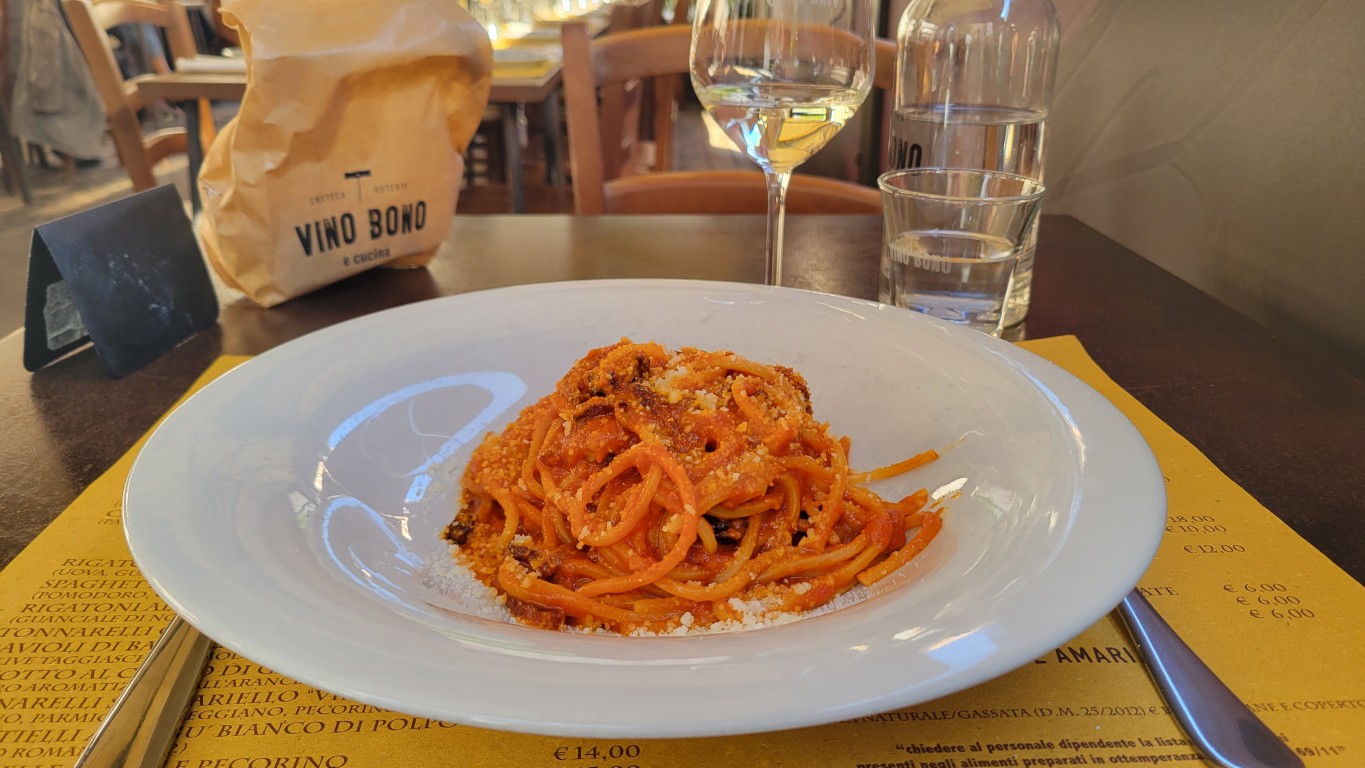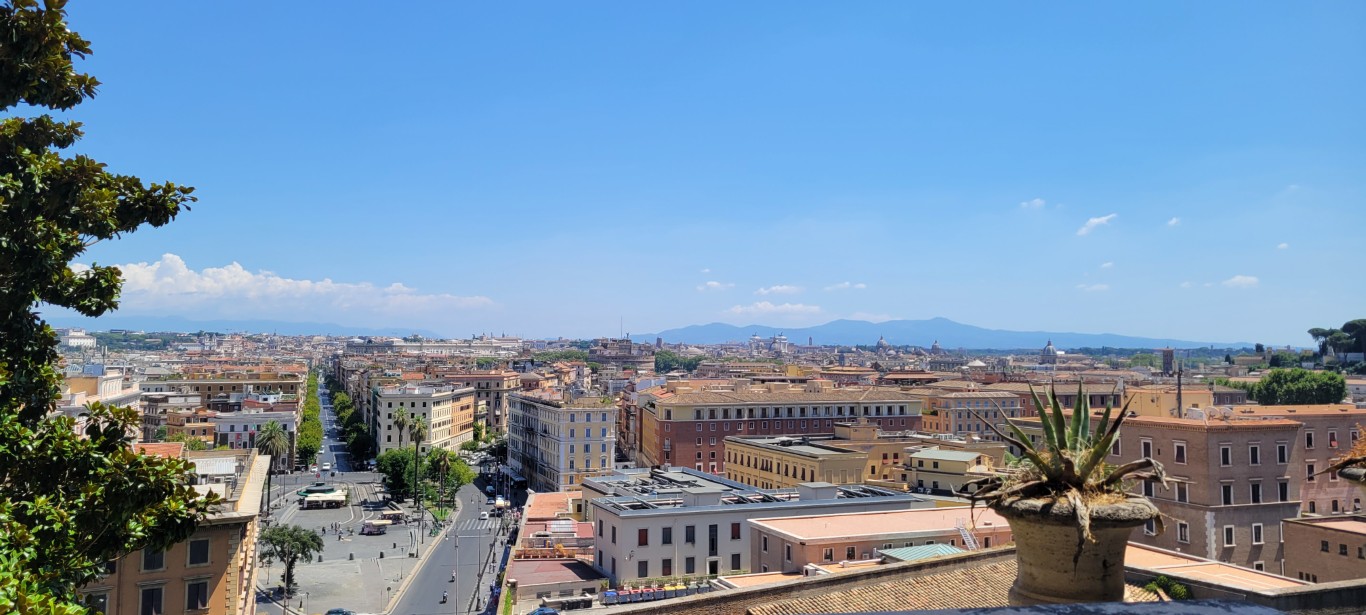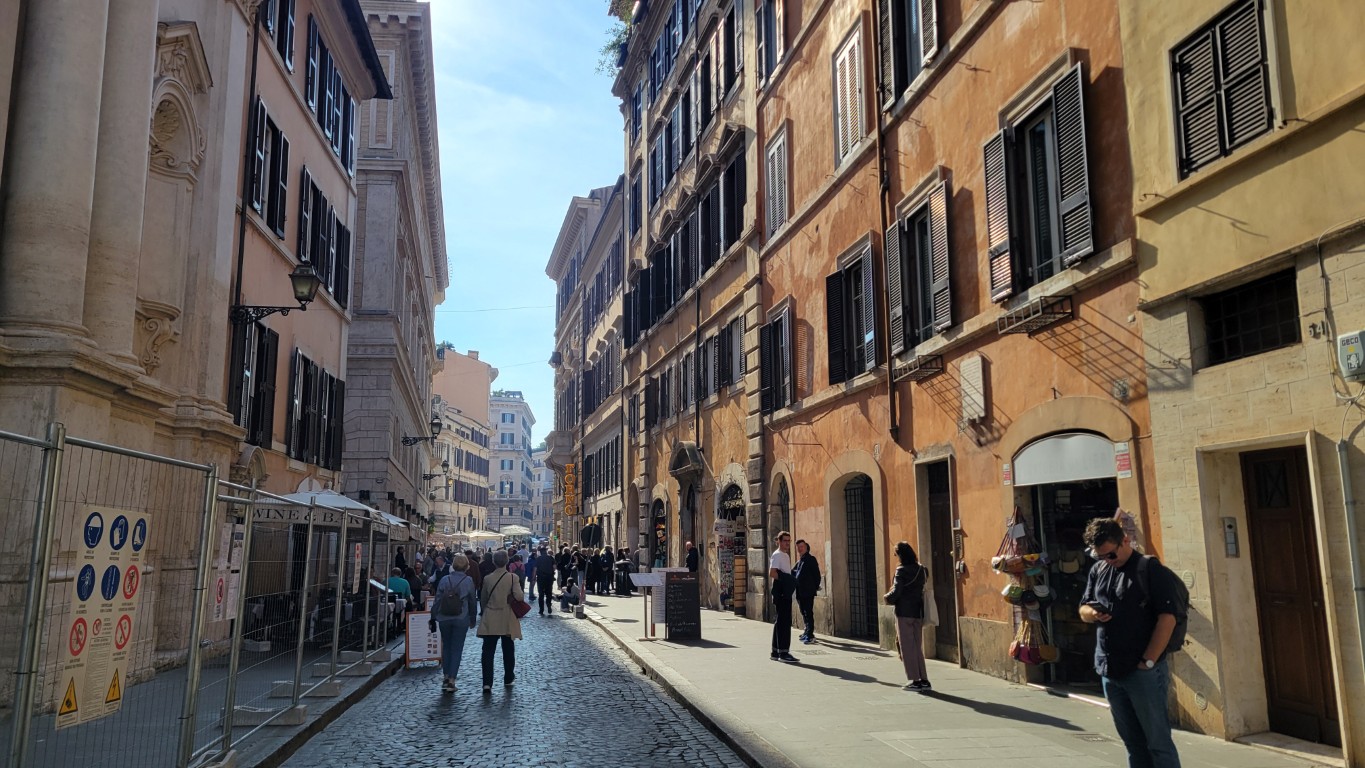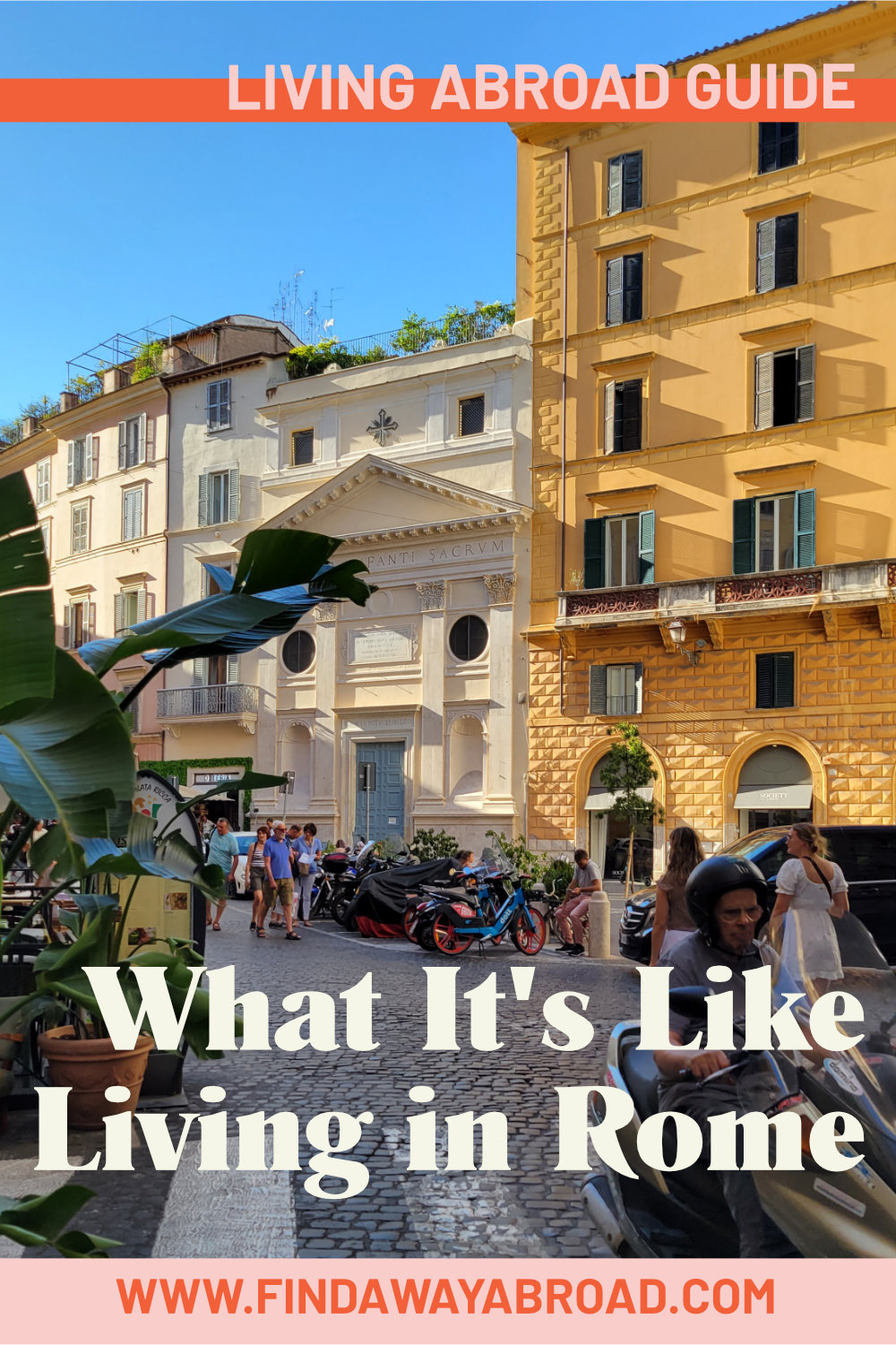By the time I was 35, I had moved five times for education or career opportunities. My sixth move, however, was not for work but for love, and it brought me to Rome.
That is why I am excited to write this article, sharing an honest reflection along with some practical tips for anyone considering a move to Rome, the gorgeous Italian capital I am glad to call home.
Although moving to Italy requires your flexibility and the ability to jump through some hoops, in the end it's been worth it.
Let's dig in to see if living in Rome is right for you, too.
Short on time? Here’s the cheat sheet
💭Living in Rome means a continuous fight between old and new, creating a picturesque environment but still a modern city that works.
🏠When house hunting, consider moving to the area outside of Porta Pia, Monteverde or Ostiense.
📚Make your transition easier and get a headstart learning the language with Mondly.
🛂Most foreigners who move to Italy are on a work visa or the new digital nomad visa.
💰Cost of living can be higher than other parts of the country. Earn travel rewards on all expenses with a Capital One Venture Card.
📞Save the hassle of getting a local SIM or the cost of roaming with Airolo, an e-SIM that’ll have you connected from the moment you arrive.
☂️Although you’ll certainly be surrounded by tourists,
🏖️Living in Rome is a dream come true for most of us, where you can live your daily life immersed in impressive history and dazzling piazzas.
What Daily Life in the Eternal City Is Really Like for Foreigners

In Italy’s big cities, many people speak English. Having said that, Italy is a country proud of its culture, deeply rooted in communities.
Learning the Language Opens Doors
If you want to truly have the Roman experience and make new friends, you will need to move beyond the "expat living" and learn the language. That begins with talking to locals.
The good news is, compared to other countries I have lived in, Italians are astonishingly patient when you try to speak their language and encourage you even when you speak broken Italian and make a lot of silly mistakes.
Once you show genuine curiosity for Rome and its culture, you will find that it is very easy to make new friends. Romans you meet will introduce you to their families, partners, and wider circle of friends once they trust you.
Being invited to a dinner or a hike sometimes may mean five other people you have never heard of are also invited. Many expats stick to their international circles with English speakers, but I would strongly recommend learning Italian. In the long run, you will feel more at home.
Depending on your goals, I recommend these apps/platforms for language learning:
- Drops: Use the free version of this app for 5-minutes of vocab lessons a day. This is good for improving vocab but little else.
- Mondly: If you want to have a little bit more practice, this app is similar to Duolingo but has less silly prompts and more realistic phrases and sentences.
- Babbel: Babbel is similar to Mondly but also teaches cultural tidbits during the language lesson.
- iTalki: If you're more serious about learning to speak the language, this platform allows you to have 1:1 or group lessons with native teachers.
Food Is Central to Everything
You'll be glad to find out food in Rome is not just delicious, it is woven into everyday experiences. A simple €6 plate of pasta can feel like a Michelin-star experience. The service is always an experience with friendly staff willing to offer you a great conversation and sometimes even a free coffee.
There's Plenty of Excuses to Get Outside
Yet, the reality is that living in Rome is not all about pizza and pasta. There is a strong outdoors culture and a wide range of events to choose from. If you are new to the city, joining a free running club or a yoga class in the park is a great way to make friends.
The city is filled with yoga studios (here is my favourite) and HIIT or weightlifting classes (also a favourite). Incredibly big, lush parks with beautiful statues are free. There is also open-air Tai Chi at Villa Torlonia or the Zumba classes at Villa Borghese, attended by people of all ages.
It's Safe for a Big City
I personally find Rome to be a very safe city but hey, I'm from Istanbul. It takes a lot to convince me that cities are not safe compared to my home country. That said, like any large city, you need to be aware of pickpockets, avoid loosely holding your phone, and be careful on half-lit streets at night.
Cost of Living in the Italian Capital: Job Market, Rent & Food

Rome is not cheap, but if you are a person who can manage your costs and your expectations, you will be more than fine.
When it comes to rent, you can expect to pay around €675 for a one-bedroom outside the center and close to €1,000 inside the historic core.
Eating out can be surprisingly affordable if you stay local and avoid tourist traps. A pizza and drink will rarely cost more than €15. Shopping at neighborhood markets is cheaper than supermarkets, and you will get better quality fresh produce.
There is no shortage of social media mockery describing the nightmarish lateness of Roman public transportation but in my experience buses and metro are clean, reliable and not outlandishly expensive.
The job market is not promising. The average gross income in Italy is around €39,000 gross per year, which translates to €1,800 to €2,000 take-home per month.
That gap between earnings and expenses explains why many locals feel life has become harder to afford things post-Covid, and why foreigners with remote jobs often stand out economically. It is quite common to be offered work without a formal contract or to receive only short-term contracts.
If you plan to work in-person in Italy, you'll need to get hired before moving to the country, unless you're an EU citizen. For the rest of us, you'll have to start your work visa process before you move, but more on visas in particular below.
Best Neighborhoods in Rome to Live In

The good thing about Rome is there is not one “best” neighborhood. There are so many options depending on your taste and what kind of social activities or events you are looking for.
One thing I can recommend based on my experience is to avoid certain neighborhoods in the city center like Trastevere, Campo de’ Fiori, and the Piazza Navona area, which are mostly taken over by Airbnbs. In such neighborhoods, the prices are inflated. You can always use Rome's well-connected public transportation to explore Rome's history without paying scandalous rents.
To live like a Roman and feel familiar, I personally prefer the areas outside Porta Pia that are less touristy and more residential. You will be surrounded by Roman families, some of whom have lived in the same building for generations. You also get more space for less money and wonderful trattorias and neighborhood markets on your doorstep.
If you want to be more central, Monteverde or Ostiense are good options. It is a nice walk and one ponte (bridge) away from the historic attractions but has a calmer feel.
Other Places to Move in Italy
Not quite sure if bustling Rome is the right home in Italy for you? Also consider moving to:
- Trieste: A charming, small seaside city close to the border with Slovenia
- Florence: Another of Italy's most famous destinations, this one settled right in the center of the country. Just a heads up, I feel like the downsides of tourism more in Florence than Rome.
- Puglia: This is the heel of the boot in Italy and is an entire region more so than a specific city. Other than the city of Bari, the region is home to numerous picturesque towns.
- Castiglione del Lago: Looking for the quiet life? This is a small town right on Lake Trasimeno in Umbria.
- Venice: Yep, that's right. You can actually live in Venice. Although incredibly popular, most tourists stick to a few central areas, leaving the rest of the area with a more residential feel.
Visas & Residency Permits in Rome: What to Know

No one moves to Italy for its bureaucracy, yet dealing with it becomes a defining part of life here.
To live in Rome, you will need a permesso di soggiorno (permit to stay). It is the legal residency permit that allows non-EU citizens to live in Italy beyond a short visit. Think of it as your permission slip to remain in the country after entering with the correct visa.
Beyond the permit, Italy recently introduced a Digital Nomad Visa for non-EU citizens working remotely for foreign companies. It requires proof of income above the Italian average salary, health insurance, and remote work credentials. It is not easy, but it provides more options for foreigners looking to move to Rome.
Your residency permit is critical because it will include your codice fiscale, Italy’s tax code. You will need this code for almost everything, for example, opening a bank account, signing a lease, registering for healthcare, or even getting a SIM card.
You will also need to register with Italy’s public health system, the Servizio Sanitario Nazionale (SSN), which offers universal coverage for citizens and legal residents. When you register with your local ASL (regional health office), you receive a tessera sanitaria (health card) granting access to medical facilities and services such as your family doctor, hospitals, emergency care, and subsidized prescriptions.
Daily Life in Rome: What to Love & What to Tolerate

Despite the dolce far niente stereotype, I find the services in Rome to be speedy and excellent. Do you have plumbing issues? Great, you have someone who can come and fix it in the afternoon (I once waited two weeks in Berlin for an exploding pipe in the middle of freezing temperatures, so I do not take this for granted).
Italy also fosters entrepreneurship, since Italy is not a traditional corporate ladder country but rather one where small and medium businesses are pretty common. So if you are a comfortable freelancer looking to offer your services, you will fit right in. Those seeking a traditional corporate career without excellent Italian language skills will likely be disappointed. Decent wages and English-speaking jobs are in high demand, and quite rare.
One thing that makes it very easy to slide into Rome's chaotic culture is the abundance of different types of events, including free events if you can bear with a little Google-ing. Make sure you check Understanding Rome and the New Roman Times for events and cultural insights.
On to not so great things… It is important to mention there is a lot of traffic and reckless driving. The exhaust fumes from the cars can feel debilitating for those of us who like to walk and run in public spaces.
With over-tourism and widening economic divides, many locals feel that foreigners, especially those with international salaries, are better off, which can create resentment and may add an additional barrier to entry to social circles. So being respectful of this dynamic matters.
Moving to Rome: What I Wish I Knew
Living in Rome is a dazzling experience. You'll sip your coffee in an unassuming bar against the backdrop of ancient ruins, piazzas, and golden light. Yes there will be a lot of tourists, but you'll still be glad to be here.
Finally, Rome is less about the Dolce Vita dream we so often see on social media. It’s sometimes challenging, sometimes frustrating, but always beautiful—full of life and community.
Trust me, once you find your place here, Rome will feel less like an ancient giant with its history and more like a small village. This beautiful city offers so much but if you get stuck in an expat life, Rome will hide its true beauty from you.
I believe Rome is a great place to live, and I am so glad I made the decision to move here. I can confidently say, despite its challenges, I am living my dream life.









.png)
.png)